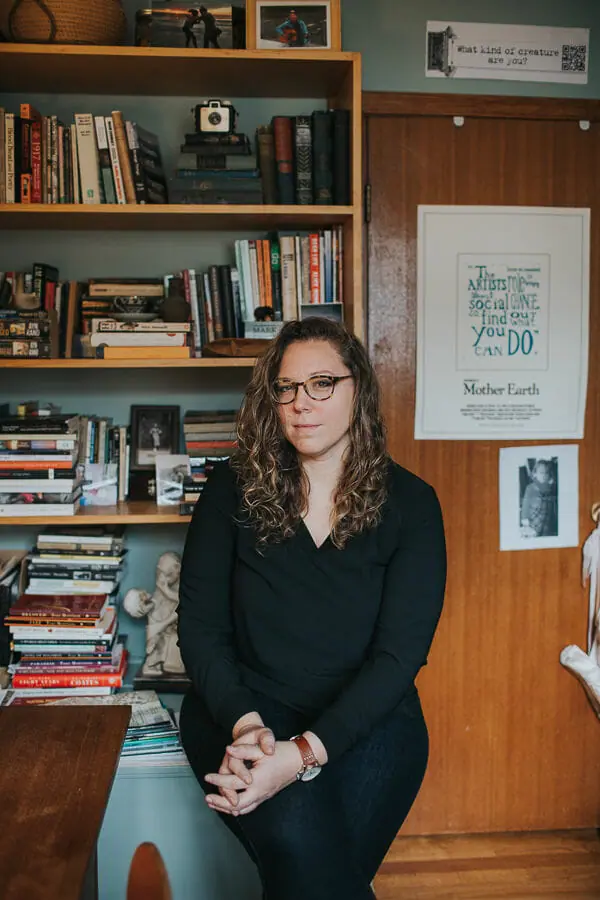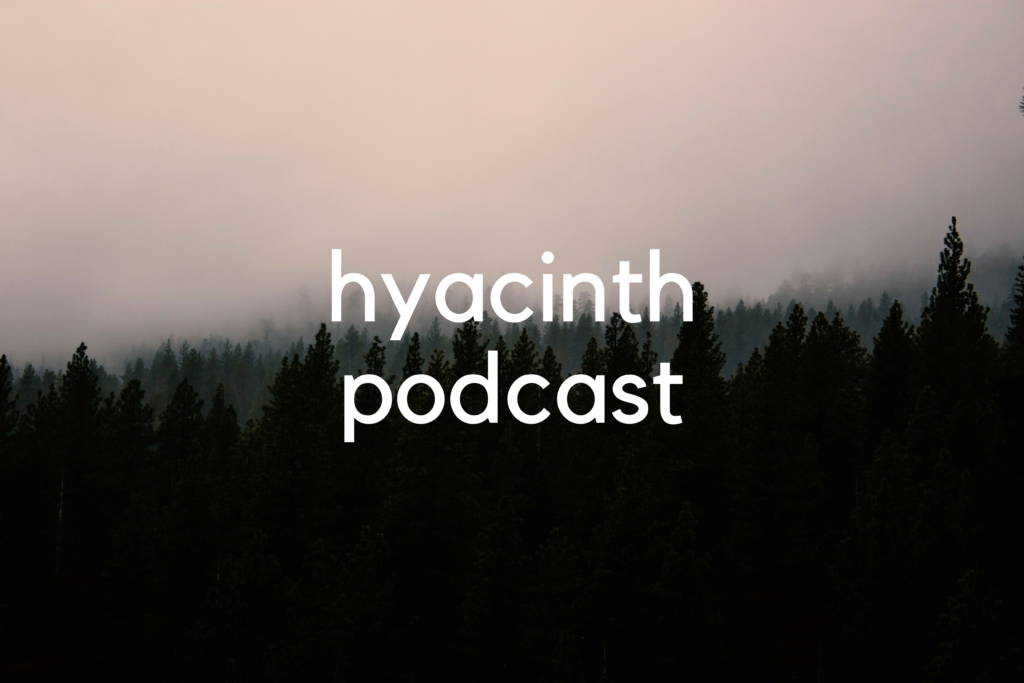The cultural impact of trees and the connection between falconry and trauma may seem like unrelated topics, but they are the first two episodes in a Dalhousie University alumna’s new monthly podcast: Hyacinth.
For Carmel Mikol, the process of writing and creating is second nature. Growing up in rural Cape Breton, she was encouraged by her family to express herself through art. As a child, she was inspired by her father, who would play guitar, sing and write poetry. Her grandfather, who was the president of the Canadian Authors Association, was another role model. They inspired her to pursue writing and the study of literature.
Like many writers and artists, Mikol found it hard at first to turn her creative energy into a full-time job. However, she was determined.

Making information accessible
Mikol graduated from Dal with an honours degree in English in May 2019. She says Dal was a great place to pursue her passions and credits a “wide array of scholars and a few key professors” who made it a seminal time in her life. She currently attends graduate school at Queen’s University in Kingston, Ont.
While attending school, all Mikol needed to do to access a breadth of scholarly knowledge was log in to an online library. But this is a privilege not everyone has access to. Mikol wanted to remove the paywall and close the gap between scholarly ideas and everyday life. This idea led Mikol to create Hyacinth.
“I wanted to make something where you could pull these huge ideas that scholars come up with from around the world, and you could connect them down to something more grounded, like the work of artists,” Mikol says.
To make information on her podcast accessible, Mikol publishes all of her references and unabridged interviews online for readers to peruse if they’re curious to learn more.
Work behind the scenes
Aside from hosting, researching and interviewing, Mikol is also in charge of all the production aspects of Hyacinth, and is constantly working on multiple episodes at a time.
Mikol describes the production period, which lasts about a month, as “very intense.” She hopes to build a production team in the future, but in the meantime, all of the hard work she does (which includes writing and performing original music to go with each episode) pays off. The feedback, she says, has been wonderful.
“It takes quite a bit of work to distill everything down into these short 20-25 minute episodes, but it’s important to me that they are that short, manageable length,” she says. “I want people to be able to listen to them on their walk or their drive to work. I don’t want it to be this huge investment. I want people to be able to encounter these really beautiful ideas in an easy part of their life.”
Part of the reason Mikol decided to create Hyacinth was that she observed the increased popularity and easy accessibility of podcasts. Her choice reflects a growing trend in podcast listenership. According to research from The Infinite Dial, an annual study of Canadian digital-media consumers, monthly podcast listening has increased in the Canadian adult population from 28 per cent in 2018 to 36 per cent in 2019. This research suggests that online audio is getting more and more popular, and many Canadians are tuning into podcasts for entertainment and to learn about topics they’re interested in.
The goal
When listening to Hyacinth, Mikol wants her audience’s biggest takeaway to be that there are big, beautiful ideas out in the world that can make their lives better.
“We can encounter [these ideas] every day, for a few minutes, and they can change the way we see life and change the way we experience really difficult things. I want to put something out into the world that is beautiful, but also expands our idea of our shared human experiences.”
Mikol aims to include different voices and experiences in her podcast, blending art with academic research.
“These are conversations with real people, and they are put together in this single voice in my podcast, kind of like the way many instruments come together to make a song,” says Mikol. “I just want people to know that despite all the difficulties in life, there are these small encounters with beauty and big ideas, and they can reshape the way we experience life and each other.”


Recent Comments